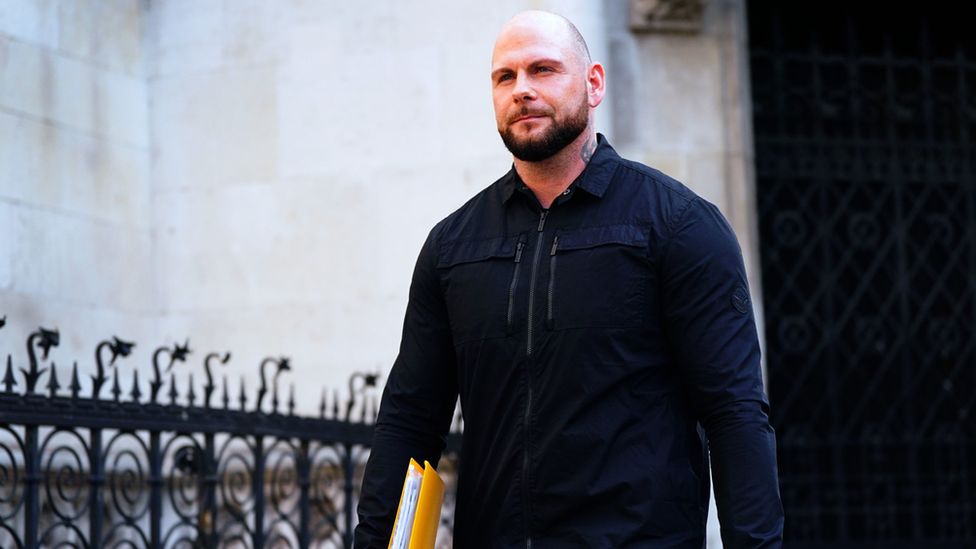
Indi’s father Dean attended the High Court hearing on Friday
By Dan Martin, Sharon Barbour & PA news agency
BBC News
The parents of a critically ill baby girl have asked a judge to prevent medics ending her life support.
Six-month-old Indi Gregory has mitochondrial disease and is being cared for at the Queen’s Medical Centre (QMC) in Nottingham.
The hospital has applied to the High Court to end her treatment and has said it can do no more for her.
Her parents are opposing the application and say she deserves a chance at life.
Image source, Gofundme
Indi’s parents have launched a fundraising page as part of their dispute with the NHS trust
Indi’s father Dean Gregory, from Ilkeston in Derbyshire, attended the High Court in London on Friday.
He hopes to persuade Mr Justice Peel to refuse an application which Nottingham University Hospitals (NUH) NHS Trust said was in his daughter’s “best interests”.
The judge relaxed statutory restrictions covering private family court hearings and said Indi, her parents and the hospital involved could be named in media reports.
He was told Indi’s mother Claire Staniforth had remained by her daughter’s side in intensive care at QMC where she has been treated for the rare genetic condition.
Mitochondrial disease prevents cells in the body producing energy and the NHS says the condition is incurable.
Image source, LDRS
Indi has been undergoing treatment at the QMC in Nottingham
Barrister Emma Sutton KC, who led the trust’s legal team, told the judge that Indi was “critically” ill.
“Since her birth, Indi has required intensive medical treatment to meet her complex needs and is currently a patient on the paediatric intensive care unit within Queen’s Medical Centre, Nottingham,” said Ms Sutton.
“The case relates to the most difficult of issues, namely whether life-sustaining treatment for Indi should continue.
“The court is asked to make that decision because Indi’s parents and those treating her cannot agree.”
‘Extremely difficult case’
Indi’s parents have started a fundraising page as part of their dispute with trust and supporters have so far donated more than £1,000.
In a statement, NUH’s chief nurse Michelle Rhodes said: “We can confirm that the trust has made an application to the High Court to ensure that Indi’s best interests can be protected.”
“We wish to express our sympathies to Indi’s family at this very difficult time.
“We know that this is an extremely difficult case for all involved and we continue to support Indi’s family and provide specialised care for Indi.
“Cases like this are so difficult and we are of course saddened that we are unable to do more for Indi, but we will always act in the best interests of our patients and do all we can to advocate for them when needed.”
The legal dispute echoes that of Charlie Gard who had encephalomyopathic mitochondrial DNA depletion syndrome and died in 2017 after a legal bid for experimental treatment was refused.
Follow BBC East Midlands on Facebook, on Twitter, or on Instagram. Send your story ideas to eastmidsnews@bbc.co.uk.
Related Topics
Related Internet Links
The BBC is not responsible for the content of external sites.








